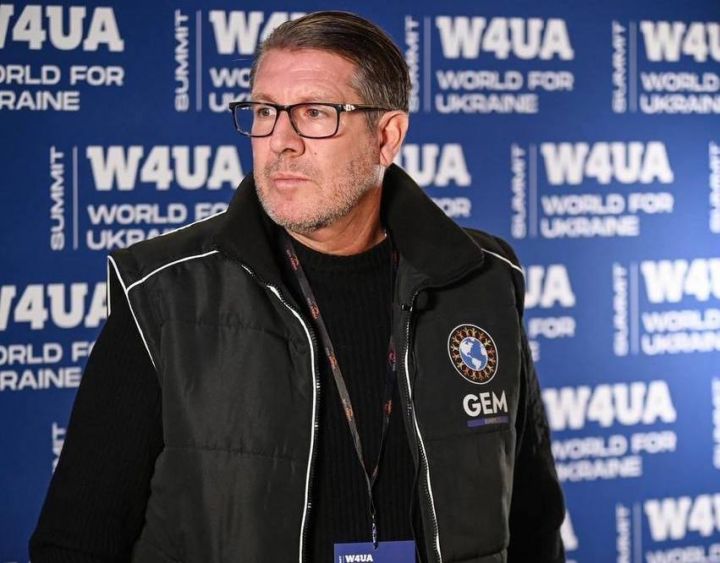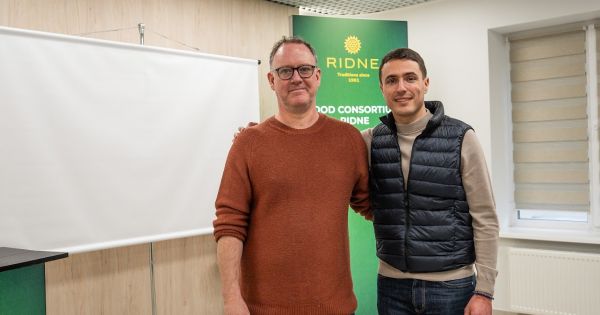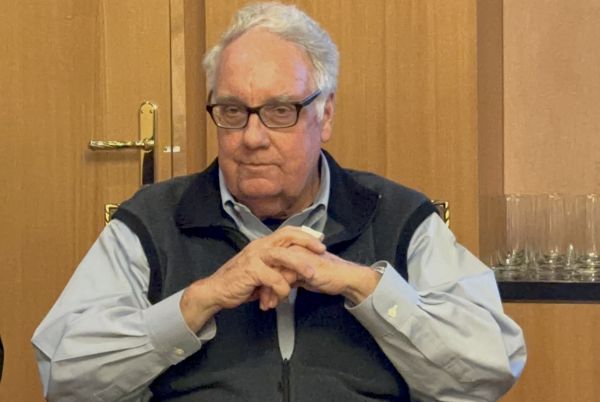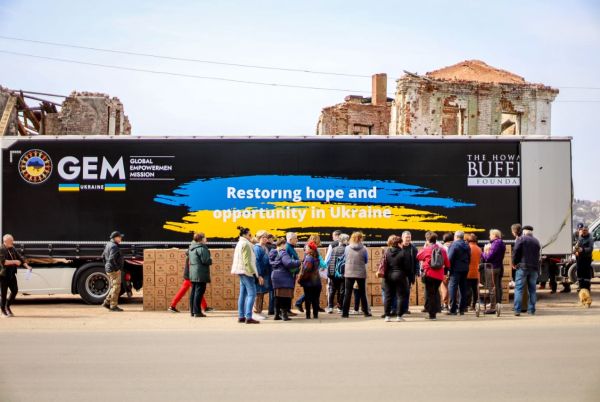Michael Capponi: Ukraine Taught Me Nothing Is Impossible
Michael Capponi, President and Founder of Global Empowerment Mission, shared his experience of helping and support for Ukraine, creating a consortium for the production of food kits in Ukraine together with local producers, and lessons learned from Ukraine.
Latifundist.com: Do you remember what you felt when you heard that russia invaded Ukraine?
Michael Capponi: I felt that it was coming. I was in Miami. On February 23, we were already loading containers, before the Big War started. So, we knew that something was gonna happen. On February 25, I was in Poland. It was extremely difficult. I came with just a backpack. I thought I slept maybe 20 days in my house in the United States last year, ‘cause I had to move to Ukraine because of this.
Latifundist.com: You have visited many destroyed places, and seen the results of many natural disasters, what impressed you the most in Ukraine?
Michael Capponi: When a hurricane happens or a tornado or a volcano, anything, it comes and it destroys. But the next day every day gets better. Because it's over, it passes. Here, when we are talking about the war, it never ends. Right now, it ended in Bucha, but it never ended on the front lines. It's like a hurricane that's been going on for more than a year. Every day, there's like a new wind, a new storm and new buildings that get destroyed, new people who die.
So, you can never stop helping. That's why I'm still here, in Ukraine. If we weren't doing what we do in the front lines, I think that hundreds of thousands of Ukrainians would be in a very different position, you know, it's a lot of food and supplies that we bring.
Latifundist.com: How did the idea appear to create a consortium of food producers, which in cooperation with such international foundations as The Howard G. Buffett Foundation and GEM Ukraine provide the country with humanitarian food kits?
Michael Capponi: In the beginning, we were working with partners from the United States like Goya. It is a big food manufacturer. They have production in Spain and they were bringing food from Spain to Poland and then from Poland to Ukraine. That actually costs more money to produce it in Spain and then to import it and to drive it in trucks to Ukraine. It doesn't help Ukraine as much as if you buy food in Ukraine.
It proves that Howard's beliefs are right. He's a farmer and putting farmers back in business is priority number one for Howard Buffett. With this budget that we have now, we're able to purchase US$ 1.5 mln worth of food at manufacturer price directly from the farmers. And then that food goes from the factory to our production in a box and then the box directly to the front lines to people. So we call it “From farm to the front line.”
And it's very important. Because for the same amount of money, Ukrainians are getting a lot more food. And it's also creating a lot of workplaces and it's keeping the economy as you know.
It's not easy to export things anymore. It's not as easy as before because ports are closed and it takes 10 hours for trucks to drive to the border.
So if things can be purchased in the country, it's good for farmers. They can sell it for more money too.
Latifundist.com: Are you satisfied with the work of the consortium, with produced nomenclature? Or maybe you have some wishes on how to improve or expand this collaboration?
Michael Capponi: When we ask people in the front lines if they are happy with what's in the box and the quality of the food, they say: yes. I think it's the very good quality of products from the company that we are working for. “Ridne” does all the deliveries on time. It's a lot, it is about 20-30 trucks of food per month. It's going to be 50 trucks of food. Just to us. And then we add other things and we send 100 trucks of stuff to the front lines per month, the big trucks.
I think everything's going incredible. Also, the production is situated in a safe location from any potential invasion. They're not out east much where it could be very dangerous in terms of losing territory. They're not too close to Belarus. I think they're as safe in the country as it can be.
So I think we'll be able to keep producing no matter what happens.
Latifundist.com: What can you say about your experience and what conclusions do you make about collaboration with Ukrainian producers?
Michael Capponi: My experience has been incredible. It's all about our model — “How to get the most amount of aid or food to the most amount of people for the least amount of money in the shortest amount of time.” And that's what's happening. I'm not aware of anywhere where we can get it cheaper, or quicker or better. So they've come through.
Latifundist.com: What help and support does GEM provide in Ukraine in general?
Michael Capponi: We just renovated a big portion of Vokzalna Street in Bucha with the Howard G. Buffett Foundation. 2,5 kilometres of the new street, new houses in partnership with Bucha city council and the President's office. We've repaired 9 schools and 8 clinics. 180 homes were fully repaired. We're installing 35,000 windows this year in projects throughout Ukraine where people lost their windows because of explosions.
And with Howard G. Buffett Foundation, we've distributed almost a thousand generators all throughout the country everywhere in invincibility points, in hospitals and private hubs homes, clinics communities. We have a lot of work. And the work is growing not shrinking.
In the beginning, there were many organizations that were helping Ukraine, especially from the United States. And I saw them all fade out after 3-4 months.
Now there are only a few of us, that are really working hard. If it weren’t for our relationship with Howard Buffett, I don't know what we would do today, because it requires serious funding to feed millions of people on a constant basis.
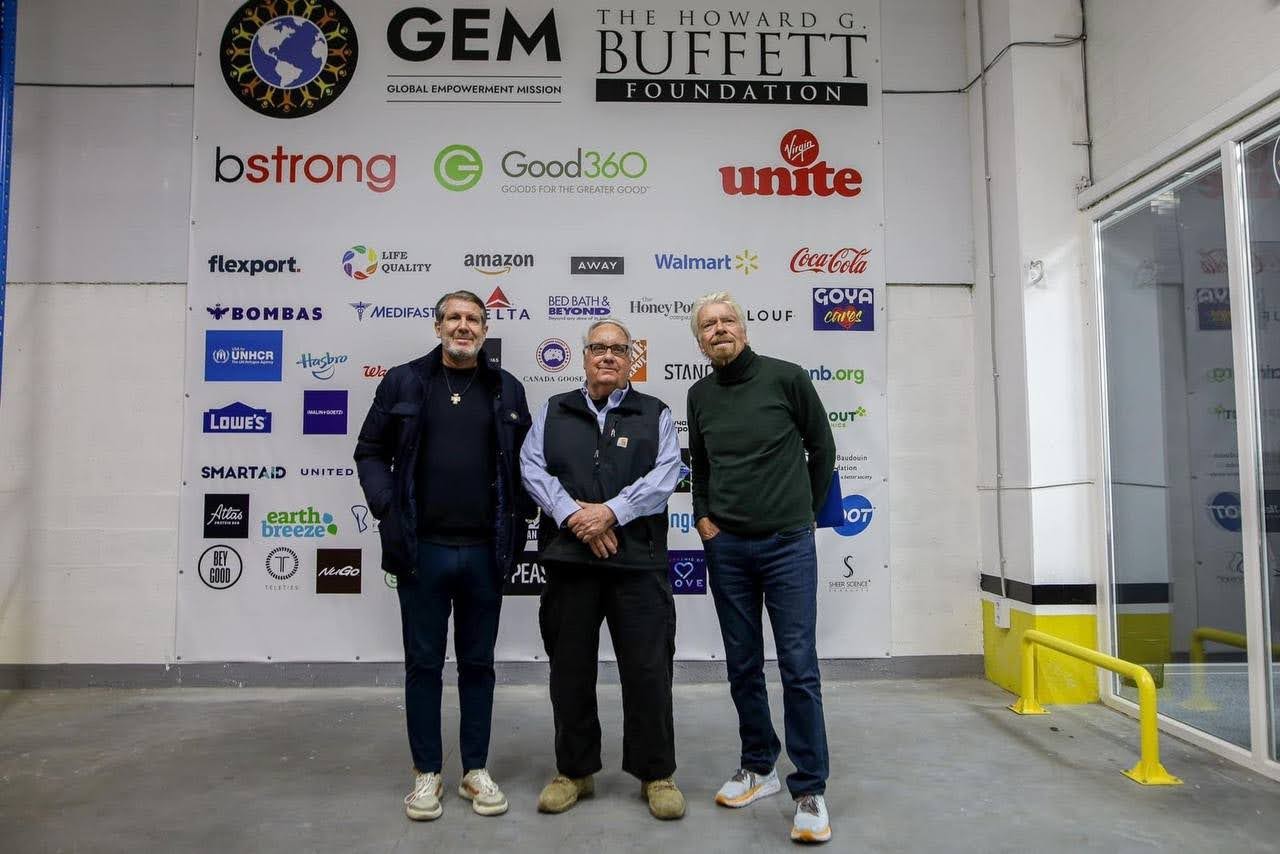
Latifundist.com: Do you feel that the world is tired of the war in Ukraine?
Michael Capponi: I think there's fatigue because most Americans don't understand European history and the lessons of World War Two and Hitler, unfortunately. Like: It's not our problem, let him do whatever, who cares. And it became a huge problem.
It would have been a lot easier to take out Hitler five years earlier when he was just rising. If the West wasn't giving all the weapons needed to Ukraine, maybe Kyiv would have fallen. And if Kyiv had been in the hands of putin, most likely Lithuania and Moldova and all these countries would have been part of russia right now. It would have been a huge problem and the front line would have been going more and more west instead of being fixed in the east.
Most Americans don't understand that anymore. They just want it to end, we understand it and that's why we're here and that's why we're doing what we do.
Latifundist.com: You helped in Bosnia when there was a war in 1999. Is it possible to compare these wars?
Michael Capponi: I helped the Kosovo War by collecting containers of blankets in Miami. And then we donated it to an agency that was working in Kosovo. Back in 1999, it was the first such thing I ever did. I was just learning and here we are, 30 plus years later, doing this very seriously now, so this experience was good.
Latifundist.com: Agrarian issue. The foundation helps restore forests in Amazonia. Is it true that deforestation aimed at expanding farmland actually leads to ecological disaster?
Michael Capponi: It has to be balanced and there are a lot of countries in South America, Brazil, for example, that are not making the proper decisions. For example, you have a very fertile part of the Amazon, that has millions of different species which are living in. You should never break that and destroy it to make farmland there. But sometimes you have land, that can be better used for farmland and then it's okay. Like I said, it's a balance. And the world is out of balance right now, and it needs to be more in balance.
Latifundist.com: How can nightlife developer, philanthropist and businessman be combined in one person?
Michael Capponi: So I forfeited everything in my life to do this work now. The nightlife was the first part of my life and I learned in nightlife to meet millions of people and celebrities and work with the media.
Then I became a developer. I started building projects. And I learned the skill and art of building houses.
Later I gave up everything and I only run the foundation, but in the foundation, we need lots of people to donate. And I know how to gather lots of people because I worked at nightlife, where you can gather people. Also, we build schools and clinics. We're gonna be in Chernihiv with a ribbon cutting of a school with 1,500 children. And I wouldn't have known how to do that if in my prior life in business, I hadn't been a developer. So that's why we always say God knows best. The different chapters we need in our lives. Everything is training. We're just in one big school every day. We learn and it's what we learn. I'm better today in my humanitarian work than a year ago when I started because Ukraine has taught me a lot.
Latifundist.com: What did Ukraine teach you?
Michael Capponi: Well, the first thing Ukraine taught me is that nothing is fixed and nothing is impossible. When I saw 30 kilometers of tanks coming towards Kyiv, I told all my friends: “Three days and Kyiv would be finished.” That's what I thought.
And look what happened? You down bridges and dams. You flooded the tanks. Miracles happen and you have to believe. The strength of the Ukrainian people is so powerful and strong. Ukraine will come out 10 times stronger than it ever was, 10 times better, 10 times hopefully, morally, more sound from all the lessons of this.
Latifundist.com: Thank you for this conversation. Thank you for your time and also for your support and your help to Ukraine. That's very valuable for us, Ukrainians!
Sofiia Yaroshenko, Latifundist.com

